Emily Carey Bids Adieu to Young Alicent in House of the Dragon
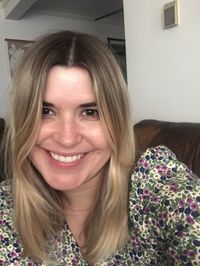

We have reached the halfway point of HBO Max’s House of the Dragon, which means the actors who play young Princess Rhaenyra and Alicent Hightower—Milly Alcock and Emily Carey, respectively—will pass the baton to their (slightly) older counterparts, Emma D’Arcy and Olivia Cooke. Cue the tears. You could say we’ve grown attached to Hollywood newcomers, making the midseason transition a bittersweet one. Alcock and Carey have made a big impression over the last five episodes, effectively setting the tone for the rest of the show. In other words, D’Arcy and Cooke have some big shoes to fill. Before bidding adieu to Westeros’s most powerful young women, we caught up with Carey to talk about her whirlwind experience starring in one of this year’s biggest shows.
Take a look at Carey’s résumé, and you’ll see the 19-year-old has spent a good portion of her career playing younger versions of people (first as Young Diana in 2017’s Wonder Woman, then as Young Lara in 2018’s Tomb Raider, and also Teen Wendy in this year’s The Lost Girls), but House of the Dragon was a particularly special and unique experience that afforded the North London native the opportunity to dive deep and develop the character from the ground up. With Alicent Hightower, so much is communicated without dialogue. The way she carries herself—often with a nervous glance or picking at her fingers—shows she’s an anxious girl bursting at the seams. But it’s in these subtle moments that Carey really shines. The actress pulls you in and creates empathy for a young woman at the center of betrayal. It’s a performance that has left us excited to see what’s next for the rising star.
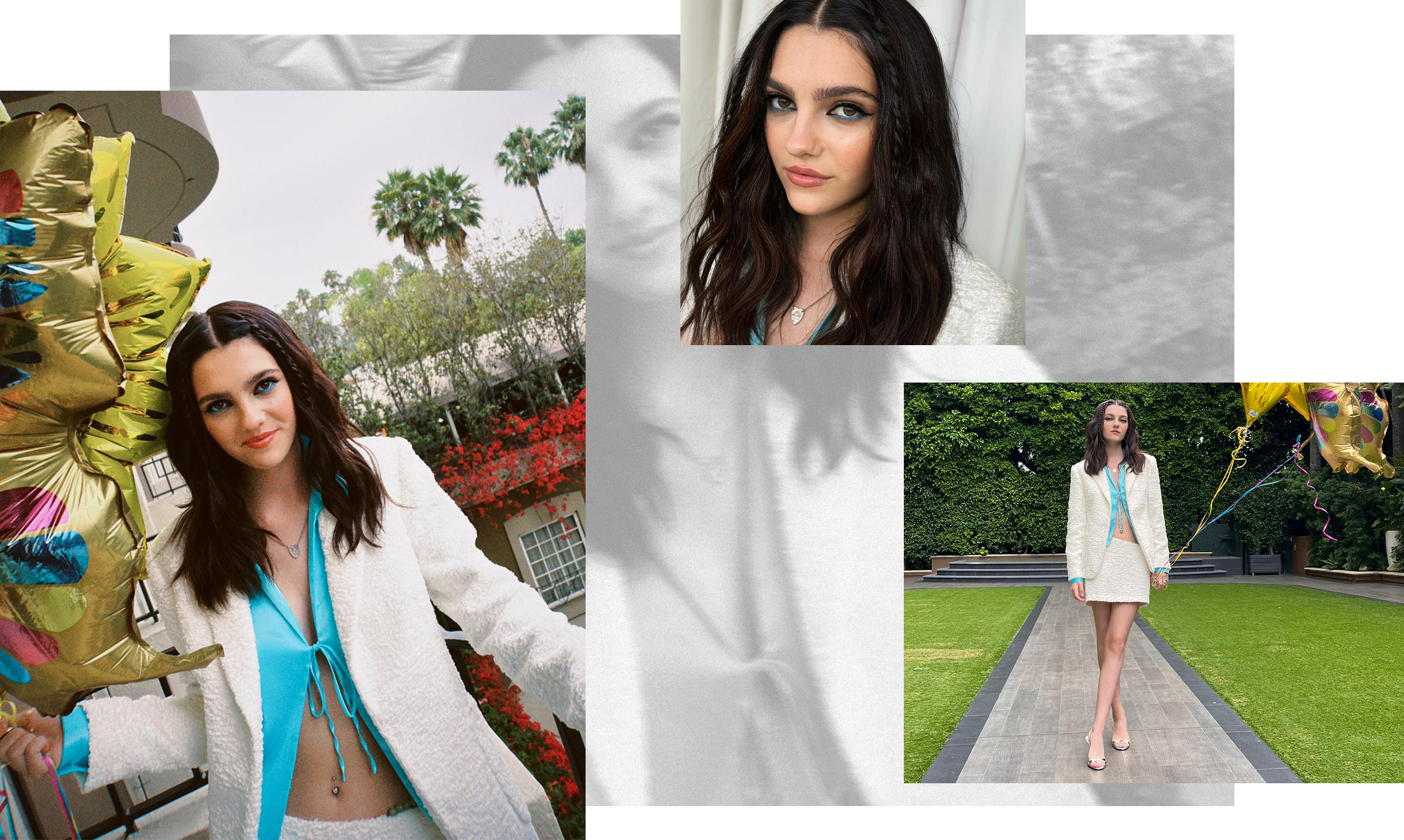
Take me back to when you first found out you got the role of Alicent Hightower. Where were you, and what was your reaction?
I found out I booked the role maybe an hour and half after I got back from my callback. I hadn’t even processed that I had done this huge audition because usually with a final callback, you are aware that it’s the big last one in the audition process and you get a good few weeks before you hear anything. It’s just radio silence and you process that you’ve done the audition and you can reflect on it when you are out of the anxious headspace that you’ve been in. So you can see it with a clear view and different perspective. But I didn’t get to do that. I knew I was down to the last three, and I knew one of the girls and knew of the other girl, and they were both like 25 and 27, so I was like, "Clearly, I’m the wildcard.” I got in the car, went home, was eating pasta in my pajamas—as you do—and then my agents FaceTimed me weirdly out of the blue. They were like, "Are you home with your mom?” And I was like, "Yeah.” They were like, "You should go sit down with your mom.” They asked how it went, and I said I thought it well. And they were like, "Well, we heard it went really well because you’ve been offered the role.” I was completely in shock for about three days and then the sobbing hit me after that. It was crazy because that was happening at like 8 p.m., and then the next morning, I was sent scenes and contracts, and a month later, we were in for the read-through, and then rehearsals followed. It was such a whirlwind experience from then on. I think the delayed sobbing set the tone for the whole job. I was just panicked, dazed, and confused the whole time.
I heard most of the auditions were scenes from Game of Thrones. Was that the case for you too?
My scene was a dummy scene. This is a funny story: I thought I was auditioning for the character of YA, as in Young Alicent, but I didn’t know that. I thought it was "YA,” and it wasn’t until the second callback that it actually had "Alison,” not Alicent, "Alison” and "Rebecka” instead of Alison and Rhaenyra. And "Otto” was Oron, which was fun. I think Ryan [J. Condal] had a lot of fun coming up with all the fake names and the fake scripts, but I had two scenes that I did throughout the audition process. One scene was with Rhaenyra, and I think it was after I’m supposed to be queen because they wanted to see the older side, and then the other scene was Oron telling me about what it takes to rule a kingdom. And it was basically my mom—bless her— [reading] it on my self-tape, and the whole thing was just him talking and talking. I had, like, three words, which is how I knew at the beginning of this [that there was] a very small chance [I was] going to get this because when it’s a scene like that, you think it’s all about the look. There wasn’t much performance to give, let’s be honest. It wasn’t an Emmy-winning scene. I had to do this really weird slate. Usually, you just slate your age and your name, and the first audition of this, I had to slate a close-up of my eyes and a close-up of my nose and a side profile. The casting process was excruciatingly long with some very funny names instead of our actual names.
How familiar were you with the GOT world going in, and what kind of research did you do to prepare for the role?
I actually had never seen Game of Thrones before I booked this. No one murder me, please. I was 7 when it came out, so I don’t think it was appropriate viewing for me to watch at that age. And I’m not really a fantasy fan. I’m more of a laid-back rom-com kind of gal, which is just not very Thrones-y at all. Well, I had seen bits of Game of Thrones because it’s impossible to avoid. Everyone has seen some bits of Game of Thrones. I tried watching it in our pre-production period, but it was extraordinarily confusing because the problem was I was trying to take in our material, which is obviously a completely different show with new people and new places. Being a Hightower, there wasn’t a lot of context to take from the the original show anyway. It gave me context of what’s at stake for these people. It put that into perspective, I guess, but when I watched the original show, I was like, "Oh, I get it now. I understand the hype about it.” It’s not just dragons and stuff—there are complex stories and grounded characters, and it’s actually very watchable. But it was still confusing me.
The way that we speak in this world feels almost Shakespearean, which is something that I wasn't used to. It’s like a language barrier. So for me, what was actually more useful was reading the books for context and having the words in front of me. [That] helped me dissect the script rather than trying to watch the show. So I watched Miguel’s episodes, of course, because I wanted to be able to appreciate and respect his work when I stepped on set, and I watched the big must-see Game of Thrones moments. And then throughout shooting and over Christmas, I managed to catch up and watch all of it.
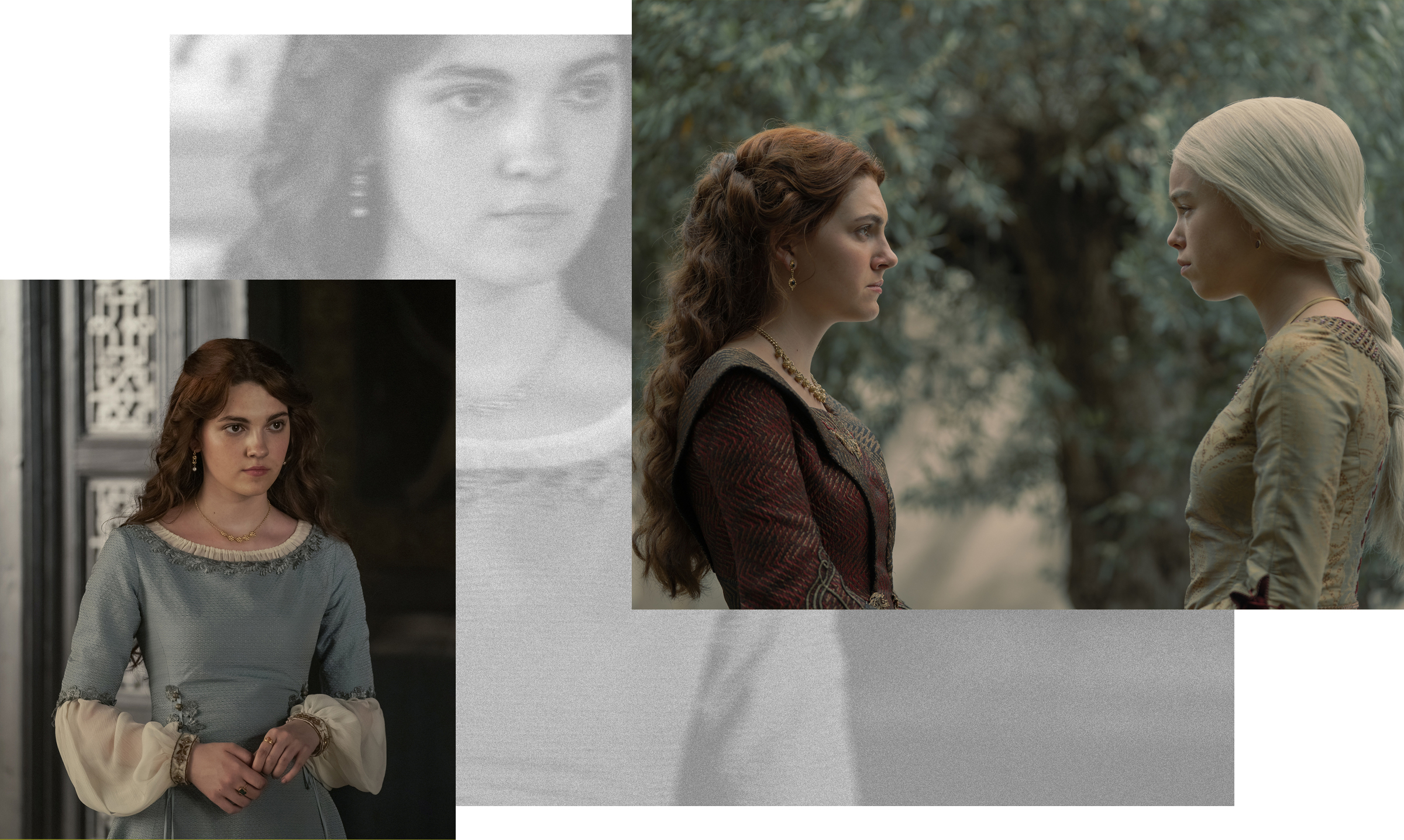
Take me into the mindset of Alicent. Princess Rhaenyra is her closest friend and confidant, and now she is stepping into the role of her stepmother. And while she may not have a ton of dialogue, it’s clear from her mannerisms and the way she carries herself that there is a lot of nervous energy going on.
It’s interesting that you say you can see so much on her face and how she holds herself and the picking. It’s because of so much that she wants to say but can’t, or feels she can’t, and it leaks out in little ways. It leaks out in a glint in the eye or a facial expression or the picking. She just cannot physically contain it all—it has to burst out the seams in some way shape or form. I work as a very immersive actor, so when I’m playing a character, my thought process disappears and I take on the character’s train of thought, if that makes sense. That’s how I work; I black out, and it feels very much like a switch between the two rather than a blend as some actors work. And so when I was in Alicent’s mindset, I found it very difficult to organize her thoughts because there was just so much going on at all times. I decided to journal. It’s something that I do on most jobs to help understand the depth of the character’s brain, and I think it takes it from being a character on a page to a three-dimensional human being. Because no one ever says constantly what they are thinking. There is always a stream of consciousness, and I enjoy having that on paper to look at. It was especially helpful in this instance because with such a long shoot, we’d do something in rehearsals or we’d shoot a scene in June and come back to the scene following that or before that in December, and it would have been very hard to jump around. So I would just read the journal [entry] of the day we rehearsed it or the day we shot the previous scene, and it would take me straight back into firsthand where my brain needed to be in that mindset. It was something that Ryan, especially more than anyone else, was incredibly intrigued by and he found it fascinating. He would sit and read it.
I remember in our story meetings at the very beginning, I had one-on-one character meetings with Miguel [Sapochnik] and Ryan and had never had that kind of creative freedom and had never been able to delve in that deep before. I came in with my folders and had every script printed out and highlighted and annotated with little tabs sticking out. They were like, "Whoa! This is great. What is going on?” And I was like, "This is how I work. This is what I do.” They were like, "Cool, let’s work with that then.” Miguel is amazing. He makes you feel like you are the only person he’s working with and the only person in the room. He’s very hands-on, and I loved that. The support we had and the rehearsal period felt like we were doing play rehearsals, which I started in theater, so, for me, it was a very comfortable environment.
Can you tell me about working with Milly Alcock and building that on-screen dynamic?
I think we were quite lucky that we didn���t hate each other. We just get along really well off-screen, and so that chemistry came very organically. Milly booked her role quite a while before I was cast, quite a while before I even auditioned, I think. And she had been asking for ages, "Who is playing Alicent?” And the second I found out I booked it, I asked, "Who is playing the other one? Who is playing the other young girl?” I wanted to know who Rhaenyra is. So we both, without knowing, asked our representatives to ask production who the other one was. We got each other’s emails, which is really weird and formal, so I Instagram-stalked her and DMd her and was like, "Hi! This is really weird. Can we talk because I don’t know about you, but I’m petrified,” and she was like "Me too.” We FaceTimed and were both like, okay, this is reassuring that we are both as scared as one another. [We were on completely] opposite ends of the world, but we were both going into this crazy whirlwind, life-changing experience together. And so we clung to each other and have not yet let go.
We worked a lot on the relationship with, of course, Miguel, but also with Clare Kilner who [directed episodes] four and five because that’s really where you see the difference in the friendship from where it’s been established into what we see it become and obviously the spark of what it’s then going to become when Olivia [Cooke] and Emma [D’Arcy] take over. But there’s just this closeness between them. I always say, at 14, especially as a woman, you think your best friend is going to be your best friend forever. There is no other option. That is your person. And it is almost like having a partner in that sense—it toes the line between platonic and romantic. At 14, you don’t know what those words mean, let alone what the feelings mean. It’s just this tactile closeness. I mean, girls at 14 are allowed to change in front of each other, they are not allowed to change in front of the boys, and they go to the bathroom together, and those things. There is just this bond. Exploring that was one of the most fun things to do on this job, and Milly made it so easy.
Olivia Cooke plays the older version of Alicent. Did you two have a chance to connect before filming to talk through the character?
It was blind, but we just had to trust the creative team. And as much as we trusted them, they put a huge amount of trust in us. We did go for lunch halfway through the shoot, but only because Liv is the loveliest human ever and messaged me to make sure I was okay. We just went for a catch-up, and we did not actually talk about the character at all. Ten years is a really long time, you know. It’s a long time in anyone’s life, but especially in Westeros where time moves so rapidly and the people around you change so quickly and the circumstances change so quickly. We see them grow from practically children to fully fledged women. There is a lot of growing up to do in those 10 years as well. So it was like we were playing different people. It’s, of course, the same character, but I don’t think anyone in their 20s looks back at who they were at 14 and thinks they are the same person. What was it that Emma said? At Comic-Con, they said [that] when they were watching Milly’s and my episodes, it felt like they were watching home video, like [a] Targaryen home video, and I think that’s such a sweet thing to say, and it makes sense. We haven’t seen Olivia and Emma’s episodes yet. I’m really intrigued to see how it’s going to be watching me, like my character, my Alicent, on screen in years to come. It’s a strange Back to the Future kind of thing.
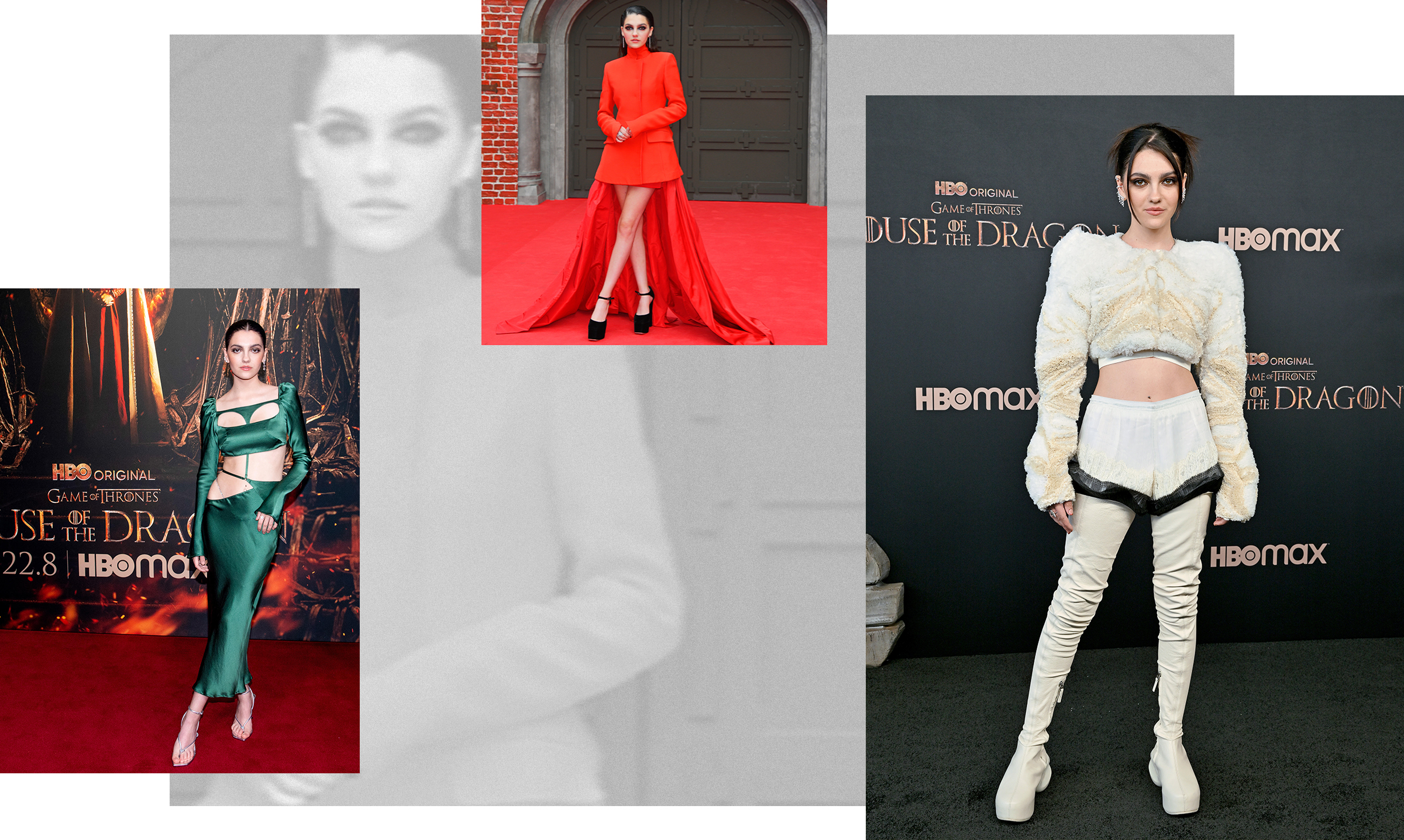
I noticed with Alicent’s wardrobe she starts in the blue and green color families, but you see this transition to red hues after her marriage to King Viserys. What were the early conversations with the costume designer about her look?
So Jany [Temime], the costume designer, is an absolute genius. She blows my mind. I remember the first time I tried on the costumes, it was the court dress, the first one I wear with the light blue and puffy sleeves. I remember her saying something in her thick French accent about sleeve length. "This sleeve length makes you look older,” she said. And I was like, "Okay, yeah, sleeve length, sure.” And then the next time I went into my fitting, they had these gorgeous long sleeves with the puffiness, and I was like, "Oh, it’s really strange I look 14 again. I didn’t know sleeves could do that.” But the attention to detail and the intricacies in the costumes, they are absolutely beautiful. And for me to wear them made my job so much easier because when you step into work and you put on your clothes and you don’t recognize yourself, that’s a privilege because it feels so very immersive. My costumes did a huge amount of storytelling for me. The colors, of course, are a key aspect of that. As soon as she marries into the Targaryen family, it switches from one end of the color spectrum to the other. You go from the rich greens and blues into the reds. Even just in episode one, going from that light blue into that deep green made me feel older because I was wearing my mother’s dress, and it felt like a woman’s color, which I never thought of before. And then there’s that huge moment when she comes in in the green again in episode five. That dress is the most beautiful thing I’ve put on my body in my whole entire life. Oh my god, it’s just so stunning. [I was] living my princess dream. And it felt so powerful. The thing about the costumes as well is they are so tight [that] they change your posture and, in turn, change the way you breathe and the way you hold yourself. It was absolutely fascinating. In episode three, my pregnancy belly changed a huge amount about the way that I held myself. I was actually coached by a midwife in how to walk and how to stand and sit, but that’s a whole other conversation. But yeah, the costumes were such a key part of this show, in general.
Off duty, you seem to be someone who enjoys a bold fashion moment. Can you tell me about the narrative you wanted to tell with your press looks for this project?
So, first of all, my styling team is amazing. Zadrian and Sarah, shout-out to them because so much of this comes from them. Coming into this, I don’t really do pretty dresses. I identify as gender queer. I still identify as a woman, but I’m quite a fluid person, and I enjoy experimenting with feeling masculine and feeling feminine and feeling androgynous and everything in between and on that spectrum—even things off the spectrum that I wouldn’t know how to word. Feeling like a walking piece of art is something that I love, and I brought that into my first meeting with Zadrian and Sarah, and they were like, "Cool, we can do that.” I had no idea what to expect, and then one of the first things I saw from this press tour was the Givenchy look for the L.A. premiere, which was everything that I wanted and more. It was not a pretty dress; it was not hyper-feminine, which meant that I could do something hyper-feminine with my hair and makeup and not feel like I was there to be sexualized or whatever. It had this almost coral reef [texture to it], and it felt like I was wearing something that belonged in an art gallery, and it made me so happy. I remember Eve Best saying, "This is very Björk,” and that was the best compliment I've ever received. I think Björk is an icon.
And then we had the green moment in Amsterdam, which tied into the press day as well, which was also greenish but had a bit of an edge. Again, giving a fierce edge to something that would be seen as feminine. And then London was my dark moment with the sweeping red Fendi. It was a nod to the show going from the green to the red. We called it "the carpet becomes her,” because as I was walking up it, the red blended in, which I loved. It made me feel stronger than I’ve ever felt, and it made me feel more like a fierce woman than I’ve ever felt, which for me, if I’m being honest, is an uncomfortable feeling. But in that moment, that piece of clothing itself just made me take ownership of that, which was a really beautiful thing to happen. I was not expecting it, and it had nothing to do with flaunting my body or anything of that nature. It was just fabric on my body styled in the most perfect way, and I had sick hair and makeup, and I just walked onto that carpet and felt amazing.
House of the Dragon feels like a big jumping-off point for you at this stage in your career. What are you excited about next?
What a question that is. Currently, I’m just taking it day by day and riding the wave and feeling every emotion that I need to feel and trying not to get overwhelmed. There have been a lot of tears, a lot of adrenaline, and most of the time, I can’t tell if I’m crying with joy or pride or if I’m terrified. And the adrenaline, I can't tell if it’s nerves or excitement. But I’m just excited, in general. Like I said, it’s a strange concoction of emotions. I have nothing lined up as of yet, which is quite nice. I am just so open to a multitude of things. I want to break out of this box. I wouldn’t say I have a typecast, but I’ve been playing a lot of younger versions of people, which is great and so much fun, but I think House of the Dragon was a one-off in terms of creative freedom, so I’d love to maybe have someone play a younger version of me. That would be nice. I can sit and talk to you for hours about all the things that I want to do. I have so much ambition, so I’m excited to get out there and see what I can get up to.
House of the Dragon is streaming on HBO Max with new episodes premiering Sundays.
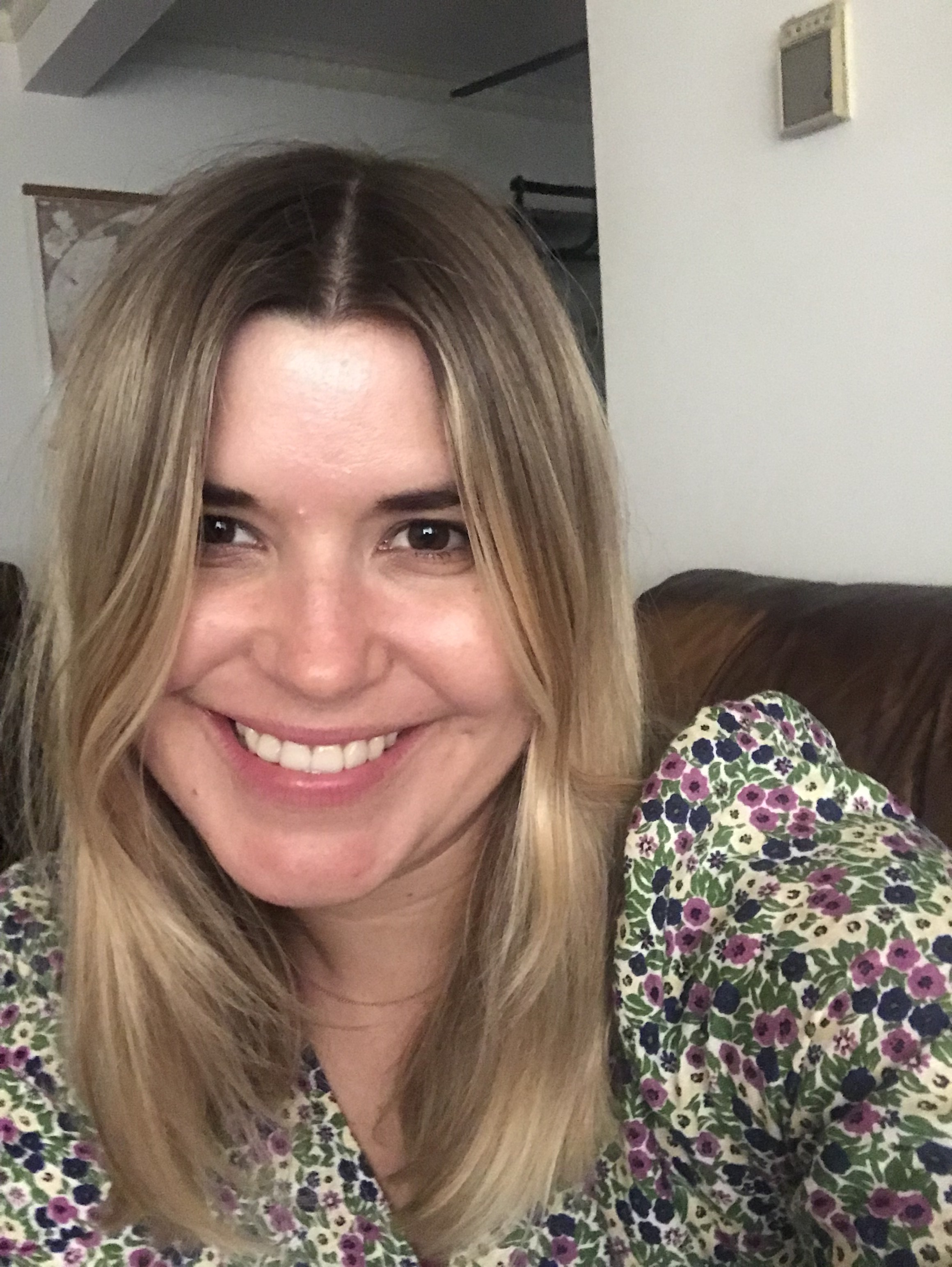
Jessica Baker has 16 years of experience in the digital editorial fashion and entertainment space. She is currently the Executive Director, Entertainment at Who What Wear where she ideates, books, writes, and edits celebrity and entertainment features.